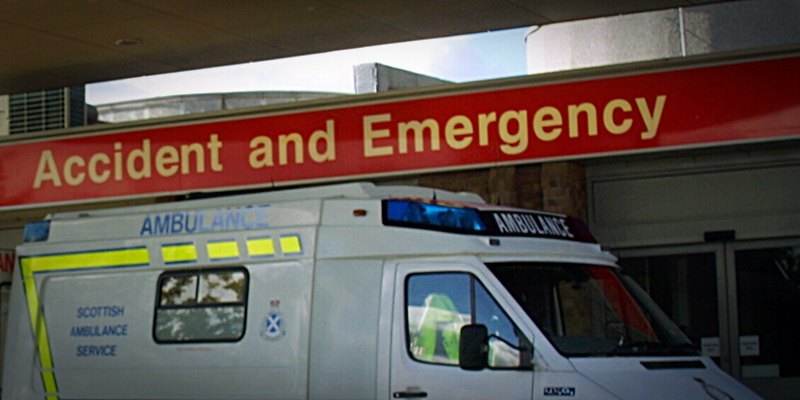A Courier investigation today reveals the startling toll under-age drinking is taking on Fife’s hospitals.
Figures obtained under freedom of information legislation reveal almost 300 children were admitted to accident and emergency departments at the region’s two main hospitals over the last three years. Well over 100 of them were 14 or under.
Politicians expressed their concern following The Courier’s probe, saying under-age drinking was bringing “misery to many communities.” They also suggested the figures should act as a timely “wake-up call.”
The Courier requested statistics relating to admissions to accident and emergency wards at Queen Margaret Hospital in Dunfermline and Victoria Hospital in Kirkcaldy over each of the last three years. They revealed that a total of 288 youngsters were admitted over the period after downing dangerous amounts of alcohol. That figure includes a total of 110 children aged 14 and under.
Central Fife MSP Tricia Marwick called for action to tackle the problem.
“These figures are absolutely shocking but not surprising,” she said. “Our streets are awash with cheap drink, and radical action is required to tackle this problem before it gets out of control.”
Ms Marwick insisted the Scottish Government’s controversial minimum pricing plan for alcohol could have made a major difference, and accused the SNP’s political rivals of “tribalism”.
“The SNP recognised this problem and attempted to introduce a minimum unit price on alcohol, which was supported by numerous medical experts and the police,” she said. “Despite this widespread support, Labour, Liberal Democrat and Conservative MSPs could not put their tribal party politics to one side and voted against the government’s proposals at the Scottish Parliament.”
Ms Marwick is in no doubt as to the harm caused by under-age drinking.
“These appalling figures should act as a wake-up call to these self-serving opposition politicians who have put the health of so many of their young constituents at risk and brought absolute misery to many communities,” the MSP added.
Mid Scotland and Fife MSP Ted Brocklebank said the statistics should act as a warning to “all parents” in Fife.Concerning”These are very concerning figures which show the dangerous levels of alcohol being consumed by under- 18-year-olds in Fife who should not even be drinking in the first place,” he said. “This is a warning to all parents that their children are at serious risk of self-harm by taking alcohol in such quantities. Parents and local communities must work together to ensure that our children come first.”
When contacted by The Courier, a spokeswoman for NHS Fife said alcohol abuse presents a “major challenge”. She backed early intervention and said a number of treatment services are already on offer in Fife.
“Alcohol misuse is a major health challenge throughout the whole of Scotland and a partnership response is required to address this complex issue,” she said. “Fife alcohol and drug partnership is a partnership between NHS Fife, Fife Council, Fife Constabulary and voluntary sector drug projects which provides advice and support on the development of services for addressing drug and alcohol misuse issues.
“By intervening at an earlier stage when problems are not too serious, more positive outcomes are likely. Young people who have misused alcohol are thus encouraged into community-based services at an early stage. Support is provided which is appropriate to their age group, with specialist services for young people differing from the needs of adults.
“Young people do actively engage with prevention and treatment services and there are a range of facilities specifically targeted at younger people.”
These include Clued Up, a drop-in facility in Kirkcaldy which works with the under-25s, and a mobile unit which takes services into more rural areas.
Last month it was revealed that the number of children being admitted to casualty in Dundee for drink-related problems had almost doubled in a year. Just over 200 intoxicated teenagers were taken to Ninewells accident and emergency in 2008/9, a figure that rose to 388 during the following 12 months.
